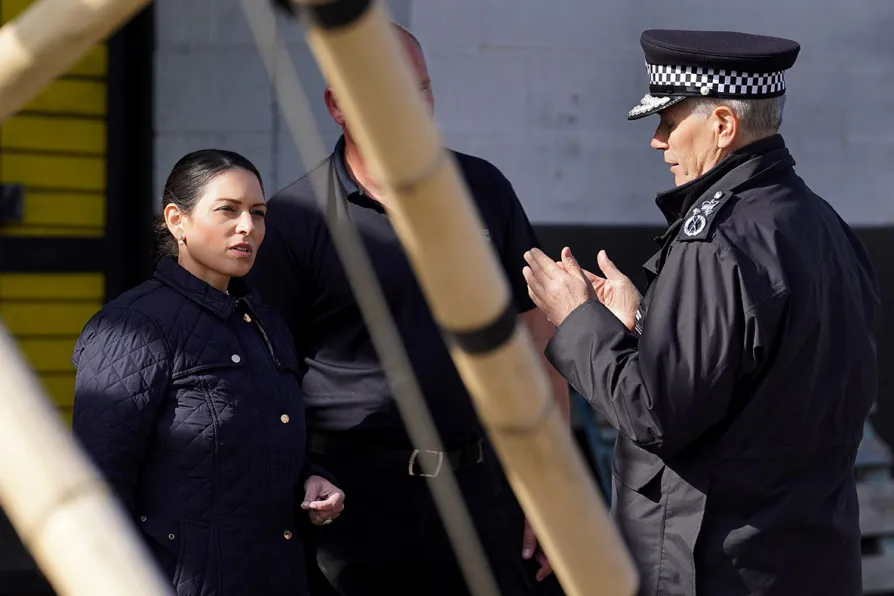
 Home Secretary Priti Patel talks to Acting Commissioner, Sir Steve House during her visit to the Metropolitan Police Service's Specialist Training Centre in Gravesend, Kent.
Home Secretary Priti Patel talks to Acting Commissioner, Sir Steve House during her visit to the Metropolitan Police Service's Specialist Training Centre in Gravesend, Kent.
PRITI PATEL’S decision to lift restrictions on “suspicionless” stop and search will worsen existing divisions between police and communities, civil rights groups have warned.
In a letter to police forces today, the Home Secretary announced the permanent easing of restrictions on the use of the tactic under section 60 of the Criminal the Criminal Justice and Public Order Act.
Section 60 powers allow officers to search people without reasonable grounds in an area when they expect serious violence and to look for weapons, either before they can be used or those used in a recent attack.

Secret consultation documents finally released after the Morning Star’s two-year freedom of information battle show the Home Office misrepresented public opinion, claiming support for policies that most respondents actually strongly criticised as dangerous and unfair, writes SOLOMON HUGHES

Court of Appeal rules key anti-protest legislation was forced through unlawfully












